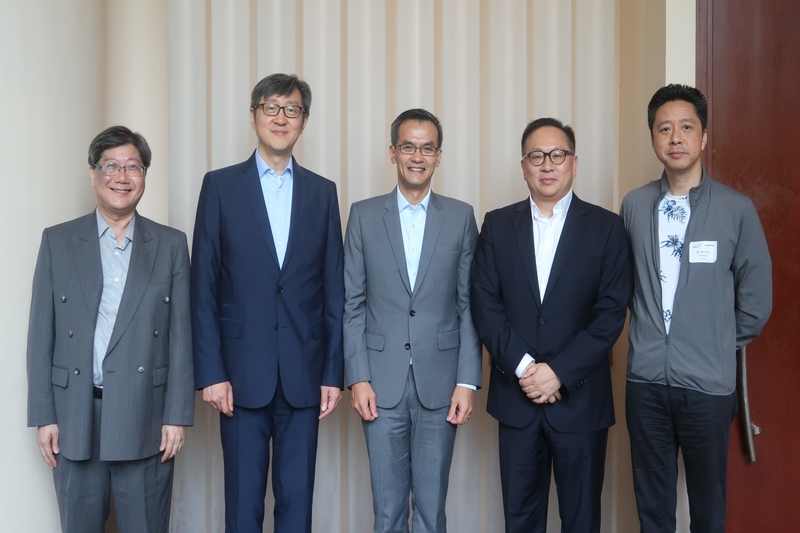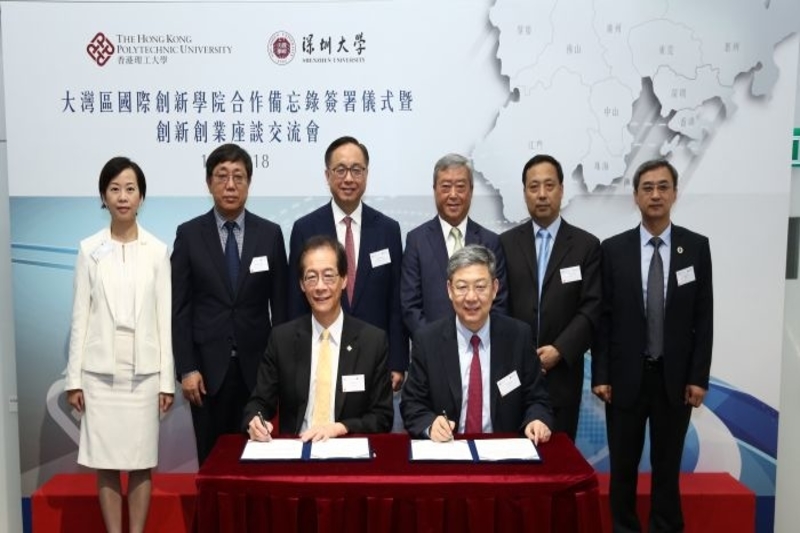ASTRI and Cyberport partner to unleash tech potential of Hong Kong’s start-ups

Applied
Science and Technology Research Institute (ASTRI)
remains committed to its mission of enhancing Hong Kong’s global
competitiveness with the power of technology, working as an important
facilitator of Hong Kong’s I&T development. The partnership with Cyberport
aims to provide a platform for innovation catalysts to connect with innovation
drivers.
Western Australia positions itself as a home for the new Australian Space Agency

WA has already been involved in
the space industry for nearly 60 years.
It has been included in major projects such as the European Space
Agency’s ground station at New Norcia, a range of commercial space communications
stations, the Pawsey Supercomputing Centre, and the International Centre for
Radio Astronomy Research. Currently, 74 international and Australian companies
that are operating in space and space-related services have a presence in WA.
Smart farming: How Thailand’s advancing technology is transforming its agriculture industry

As
the world’s food needs grow, the agriculture industry needs transformation to
match the demand. Thailand, one of the world’s biggest agricultural exporters, is
under the global spotlight. Experts, economists and businesses are watching to
see how Thailand transforms its agricultural landscape to meet this need.
Singapore’s National Parks Board to step up use of technology for greenery management

NParks unveiled a digitalisation master-plan that will leverage new technologies to improve the quality of care provided to Singapore’s
greenery. The master-plan includes tech like GPS trackers, sensors, cameras, 3D models, a Smart irrigation system, and more. NParks’ master-plan will
consolidate its technology and research in database that will information on park planning and facilities data, tree information, biodiversity data, vegetation maps and satellite maps.
New Zealand Government launches initiative to benefit electric car drivers

EVRoam a live database collated by the NZ Transport Agency from
real-time data will be fed directly from all safe and monitored public charge
points. This initiative aims to give people practical tools to
confidently drive an electric car all over the country and be assured access to power to manage the distance.Drivers are informed the about active charging stations nearby.
Leave No Thai Behind: Promoting equality of digital access in Thailand

Thailand,
having had a large digital divide in the past, is now looking to promote
equality when it comes to digital access. The Thai government has partnered up
with Google in a bid to reduce the digital divide that exists in Thailand.
Karnataka Pre-University Board goes digital with DigiLocker under the Digital India initiative

In order to reduce
the need for physical documents, students who have cleared the second Pre-University
(PU) examination will be able to digitally access their report cards using
their Unique Identification numbers through a DigiLocker.
Hong Kong’s PolyU and Shenzhen University jointly establish The Greater Bay Area International Institute for Innovation

PolyU
and SZU partner to establish GBA Innovation Hub to foster new and
ground-breaking technologies and innovations to help contribute to Hong Kong’s
mission of developing the Greater Bay Area. Leveraging the resources of both
universities, and in collaboration with renowned institutions and enterprises
worldwide, the Institute will provide a solid platform for nurturing innovative
technology talents.
Hong Kong’s ASTRI partners with HKSTP and Molecular Hub to organise Blockchain Accelerator Programme for start-ups

The programme, the first-of-its-kind in
Hong Kong, will focus on Blockchain technology development and Smart City
solutions. It will offer start-ups guidance on how to commercialise their ideas and provide vital support on what they need to do so.
Government of India to give preference to cybersecurity products manufactured by domestic companies

Cybersecurity products
in which intellectual property rights are owned by firms or start-ups organised
in India will get preference in all public procurement. The aim is to increase
income and employment in the country.
Digital Government Development Agency collaboration to allow Thai students to monitor their loans and make payments through smart kiosks

The
smart kiosks will provide students with greater ease in monitoring their
loans and more convenience in making payments. Students can check loan status by entering their IDs into the smart kiosks. Payments can be made by generating QR codes, scanning with KTB Netbank and paying online.
Australia’s Defence Science and Technology develops test to assess the capacity of the protective equipment of soldiers against chemical threats

The Vapour System
has the capability to assess the protective capacity of equipment against chemical
threats. As equipment is often purchased in different cycles, understanding how
each piece of equipment integrates into the current system is crucial. This
systems enables the DST scientists to assess how an individual protective
equipment works together within the existing parts as a whole.
ASTRI and Cyberport partner to unleash tech potential of Hong Kong's start-ups

Applied
Science and Technology Research Institute (ASTRI)
remains committed to its mission of enhancing Hong Kong’s global
competitiveness with the power of technology, working as an important
facilitator of Hong Kong’s I&T development. The partnership with Cyberport
aims to provide a platform for innovation catalysts to connect with innovation
drivers.








